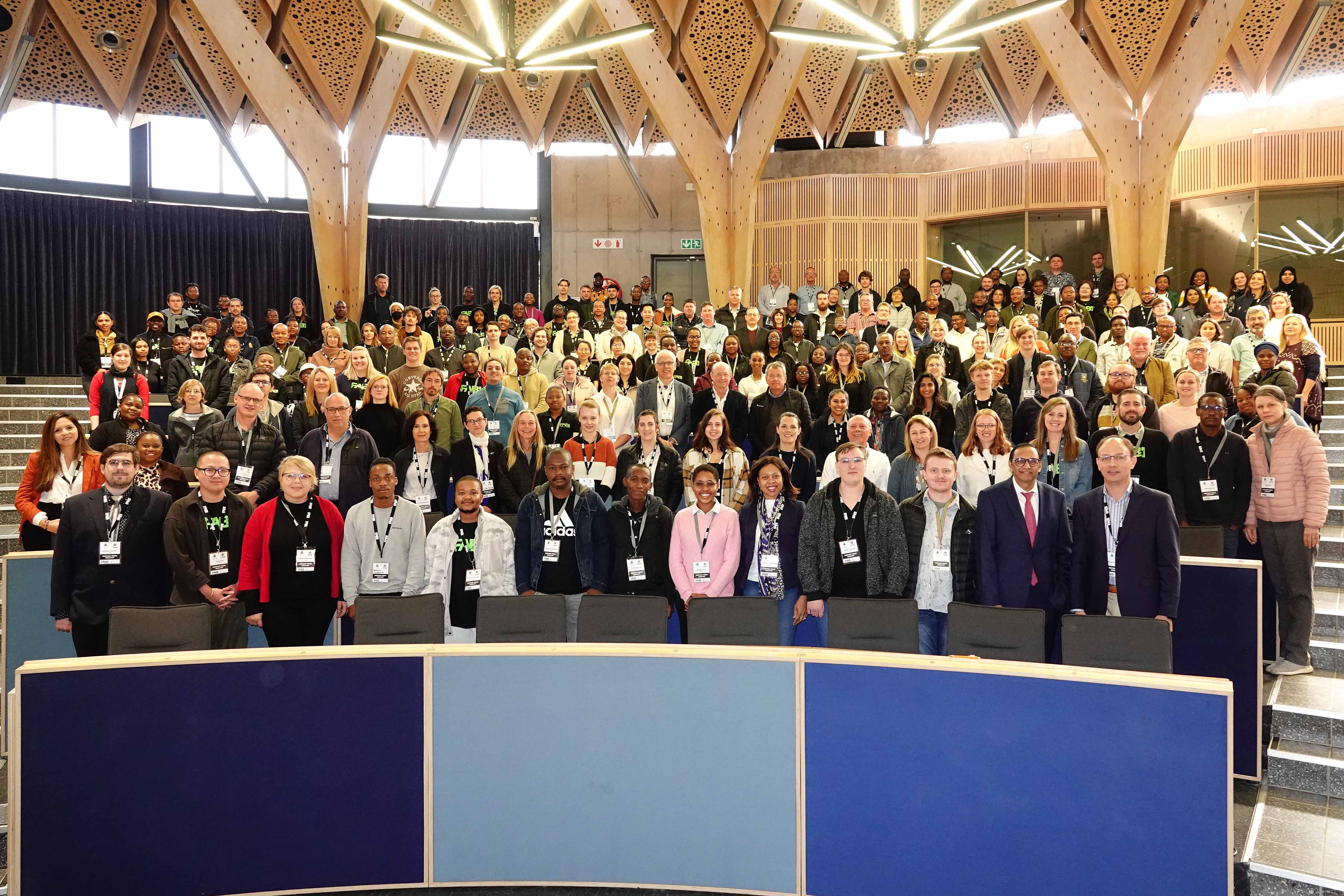A successful 34th Annual Meeting of the TPCP 2023-05-19
On 9-10th May the Tree Protection Co-operative Programme (TPCP) held its 34th Annual Meeting at the Future Africa conference centre, where staff, postdoctoral Fellows and students present their work to industry and government stakeholders as feedback on the work conducted in the past year. The meeting is followed by the meeting of the TPCP Board, who considers the annual report, annual budget plans, and the outcome of the discussions of the two conference days to steer the programme for the coming year.
In total, 218 people attended the two days both in person and online. Since 2021, the meeting has been held as a hybrid event, and this has been very successful, allowing strong in-person engagement, but also allowing linkages with partners that would otherwise not be able to attend. Participants included members from 10 forestry companies, the Department of Forestry, Fisheries and the Environment (DFFE), representatives from other research organizations (e.g. the Institute for Commercial Forestry Research (ICFR), the University of the Witwatersrand, and Stellenbosch University), international visitors and FABI staff and students.
There were four main themes that connected sessions throughout the meeting; namely the impact of the biotechnology revolution, the data science/AI revolution and climate change on tree health research, the applications of frontier knowledge, and tools for Precision Pest Management. The meeting was opened by Prof. Sunil Maharaj, DVC Research, Postgraduate Training and Innovation at the University of Pretoria, who emphasized the importance of industry and government partnerships for research programmes at UP. He expressed his appreciation for the support from the forestry industry for the programme for the past 34 years. Mr Michael Peter, CEO of Forestry South Africa followed as the keynote speaker. Mr Peter and FSA are deeply involved in engagements with the government to deal with the current challenges in the country, including energy, transport and a number of forestry specific issues. Mr Peter’s very honest, pragmatic and positive approach to working with government to resolve these issues was inspiring and set the tone for the meeting. FABI Director Prof. Bernard Slippers closed off the opening session with an overview of a very productive and successful year for the TPCP. He pointed out that the long history of the TPCP is built on the foundation of partnerships, trust and impact through the transfer of frontier knowledge.
As usual the meeting was attended by leading experts in the field of tree health from other parts of the world. This year Prof. Jonàs Oliva from the University of Lleida, Spain, presented on ‘Forest health in a changing world’, in particular reflecting on the impact of climate change on pathogens and how the study of adaptive traits in forest pathogens can help us understand and predict these responses. Prof. Manuela Branco from the University of Lisbon, Portugal, presented on ‘Biological control of Eucalyptus pests in Portugal’, a topic of great interest to the South African forestry community given our many shared pest problems. Prof. Andre Drenth (University of Queensland, Australia) and Dr Carlos Rodas (extra-ordinary lecturer in FABI, but based in Colombia) also participated in the meeting and shared their perspectives throughout the meeting.
From other South African institutions Prof. Bruce Talbot, Head of the Department of Forest Science, Stellenbosch University, presented on a joint US-FABI-ICFR platform on remote sensing in forestry. Dr Ilaria Germishuizen from the ICFR presented on the many shared projects on forest health between the ICFR and FABI. Prof. Mary Scholes, Dr Yolani Ernst and Dr Jessica Steinkopf presented on the work of the Global Change Institute at the University of the Witwatersrand and the plans for collaboration with the industry, FABI and others. Two industry members, Prof. Jolanda Roux (Sappi) and Ms. Izette Greyling (Mondi) presented on developments regarding an emerging pathogen, Elsinoe masingae, and climate change adaptations, respectively.
FABI staff, postdoctoral Fellows and students presented an additional 26 talks. The full programme can be seen here.
The two days were remarkable for the diversity and quality of the work presented, critical for the transfer of new knowledge and discussions about future developments, but most importantly it also provided an unprecedented opportunity for reinforcing the collaborative and trust networks amongst members of the industry, universities, research institutions and government. The fact that this meeting has been held so consistently for more than three decades, and yet continues to grow in content, participation and impact, speaks to the potential and power of university-industry-government partnerships.












